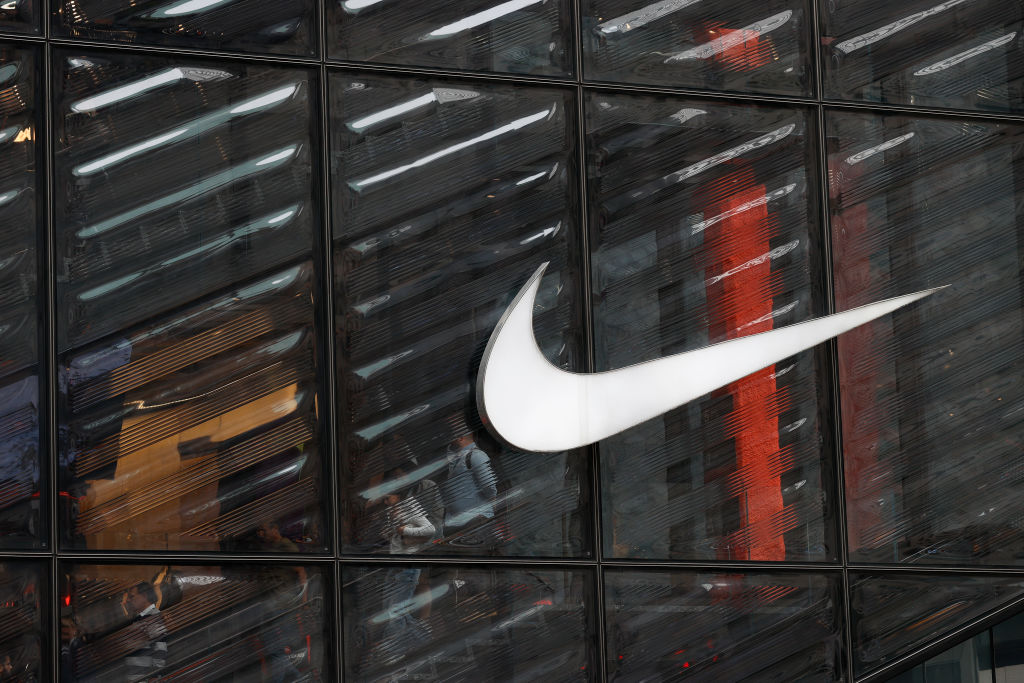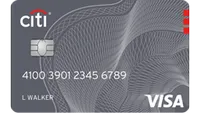Trump's Tariffs Could Make Your Favorite Clothing Brands More Expensive
Trump's tariffs will impact how much you pay for your clothing and shoes. See ways you can save even with the rising costs.

Profit and prosper with the best of Kiplinger's advice on investing, taxes, retirement, personal finance and much more. Delivered daily. Enter your email in the box and click Sign Me Up.
You are now subscribed
Your newsletter sign-up was successful
Want to add more newsletters?

Delivered daily
Kiplinger Today
Profit and prosper with the best of Kiplinger's advice on investing, taxes, retirement, personal finance and much more delivered daily. Smart money moves start here.

Sent five days a week
Kiplinger A Step Ahead
Get practical help to make better financial decisions in your everyday life, from spending to savings on top deals.

Delivered daily
Kiplinger Closing Bell
Get today's biggest financial and investing headlines delivered to your inbox every day the U.S. stock market is open.

Sent twice a week
Kiplinger Adviser Intel
Financial pros across the country share best practices and fresh tactics to preserve and grow your wealth.

Delivered weekly
Kiplinger Tax Tips
Trim your federal and state tax bills with practical tax-planning and tax-cutting strategies.

Sent twice a week
Kiplinger Retirement Tips
Your twice-a-week guide to planning and enjoying a financially secure and richly rewarding retirement

Sent bimonthly.
Kiplinger Adviser Angle
Insights for advisers, wealth managers and other financial professionals.

Sent twice a week
Kiplinger Investing Weekly
Your twice-a-week roundup of promising stocks, funds, companies and industries you should consider, ones you should avoid, and why.

Sent weekly for six weeks
Kiplinger Invest for Retirement
Your step-by-step six-part series on how to invest for retirement, from devising a successful strategy to exactly which investments to choose.
President Donald Trump announced a list of "reciprocal tariffs" impacting more than 180 countries.
Trump said the reasoning behind this was to correct trading imbalances and stabilize manufacturing jobs in the U.S. He also remarked these might not be the only tariffs to go into effect.
Some countries, such as Australia, Singapore and the United Kingdom, received a 10% baseline tariff on imported goods. Meanwhile, some of what Trump deems the "worst offender" countries received much higher tariffs.
From just $107.88 $24.99 for Kiplinger Personal Finance
Become a smarter, better informed investor. Subscribe from just $107.88 $24.99, plus get up to 4 Special Issues

Sign up for Kiplinger’s Free Newsletters
Profit and prosper with the best of expert advice on investing, taxes, retirement, personal finance and more - straight to your e-mail.
Profit and prosper with the best of expert advice - straight to your e-mail.
China received a 34% tariff to go along with the 20% already imposed. Vietnam received a 46% tariff.
As you can imagine, this can have a sweeping impact on many of the goods you buy, such as clothes.
How Trump's tariffs impact clothing
The United States receives 97% of its apparel and shoes from imports, according to the American Apparel & Footwear Association.
As part of this, China is the second-largest exporter to the United States, sending $438.9 billion worth of goods in 2024. Keep in mind that many popular clothing brands, from Shein to Ralph Lauren, make their clothes there.
In addition, many clothing products sold at Target and Walmart are made in China, Bangladesh and Vietnam, all countries impacted by the tariffs.
Footwear prices could surge

For example, Vietnam is a producer of American brands such as Nike. Trump levied a 46% tariff on imports from Vietnam.
For Nike fans, this isn't ideal news. Half of their shoes are made in either Vietnam or China. Nike is already projecting double-digital sales declines.
Vietnam is also a leading producer of Ugg and Decker Brands, most notable for Hoka shoes. CNBC reports the company had 125 supply partners in China and 68 in Vietnam.
How do Trump's tariffs raise prices?
When governments impose tariffs, they're essentially taxing imported goods and forcing companies making these goods to pay more for them.
When companies incur these costs, they can absorb them or pass them on to the customers. In many cases, they might do a little of both.
To give you an example of how it works, Trump also recently imposed a 25% tax on all imported autos and parts. Goldman Sachs said Trump's tariffs on foreign cars could raise prices from $5,000 to $15,000, depending on the model.
Therefore, it's a safe bet to prepare for your clothing and footwear to cost more, based on these indicators.
How to save when prices rise
Trump's tariffs come at an inopportune time. Consumer sentiment continues to dip, as the University of Michigan's Survey of Consumers reported a reading of 57.0, down 28.2% from this time last year. Inflation continues to be the main cause for concern.
With prices likely to rise on many of your favorite clothing brands, deals might be difficult to come by. That's why if you can hold off on buying until the dust settles, that would be the smartest bet.
However, if you need things in the meantime, I'm a firm proponent in using shopping resources to your advantage. Here are two ways to do this:
- Look for financing incentives: Most store credit cards come with high interest rates and minimal perks. One smart alternative is the Costco Anywhere Visa by Citi. Costco carries popular footwear from brands such as Ugg, Sketchers and more. Plus, with the credit card, you'll earn the following perks:
Receive 5% cash back on gas purchases at Costco gas stations and 4% back at other sites, up to the first $7,000 charged annually. Once you reach this threshold, you'll earn 1% back. You'll also earn 2% back on all Costco purchases, giving you a way to save even with rising clothing and gas prices.
- Comparison shop: There are many apps that allow you to compare prices on the same products from multiple retailers in one place. One of my favorites is Flipp. It's free to download and includes circulars from major retailers.
The bottom line
Trump's extensive tariffs will send ripple effects through our supply chains. Since some of the countries that are hit the hardest are those making many of the clothes and shoes you buy, it's a safe bet prices will rise.
By using cashback cards and comparison shopping sites, you can find some ways to save, even with prices surging.
Related content
Profit and prosper with the best of Kiplinger's advice on investing, taxes, retirement, personal finance and much more. Delivered daily. Enter your email in the box and click Sign Me Up.

Sean is a veteran personal finance writer, with over 10 years of experience. He's written finance guides on insurance, savings, travel and more for CNET, Bankrate and GOBankingRates.
-
 Quiz: Do You Know How to Avoid the "Medigap Trap?"
Quiz: Do You Know How to Avoid the "Medigap Trap?"Quiz Test your basic knowledge of the "Medigap Trap" in our quick quiz.
-
 5 Top Tax-Efficient Mutual Funds for Smarter Investing
5 Top Tax-Efficient Mutual Funds for Smarter InvestingMutual funds are many things, but "tax-friendly" usually isn't one of them. These are the exceptions.
-
 AI Sparks Existential Crisis for Software Stocks
AI Sparks Existential Crisis for Software StocksThe Kiplinger Letter Fears that SaaS subscription software could be rendered obsolete by artificial intelligence make investors jittery.
-
 One of the Most Powerful Wealth-Building Moves a Woman Can Make: A Midcareer Pivot
One of the Most Powerful Wealth-Building Moves a Woman Can Make: A Midcareer PivotIf it feels like you can't sustain what you're doing for the next 20 years, it's time for an honest look at what's draining you and what energizes you.
-
 I'm a Wealth Adviser Obsessed With Mahjong: Here Are 8 Ways It Can Teach Us How to Manage Our Money
I'm a Wealth Adviser Obsessed With Mahjong: Here Are 8 Ways It Can Teach Us How to Manage Our MoneyThis increasingly popular Chinese game can teach us not only how to help manage our money but also how important it is to connect with other people.
-
 Looking for a Financial Book That Won't Put Your Young Adult to Sleep? This One Makes 'Cents'
Looking for a Financial Book That Won't Put Your Young Adult to Sleep? This One Makes 'Cents'"Wealth Your Way" by Cosmo DeStefano offers a highly accessible guide for young adults and their parents on building wealth through simple, consistent habits.
-
 My Spouse and I Are Saving Money for a Down Payment on a House. Which Savings Account is the Best Way to Reach Our Goal?
My Spouse and I Are Saving Money for a Down Payment on a House. Which Savings Account is the Best Way to Reach Our Goal?Learn how timing matters when it comes to choosing the right account.
-
 We're 78 and Want to Use Our 2026 RMD to Treat Our Kids and Grandkids to a Vacation. How Should We Approach This?
We're 78 and Want to Use Our 2026 RMD to Treat Our Kids and Grandkids to a Vacation. How Should We Approach This?An extended family vacation can be a fun and bonding experience if planned well. Here are tips from travel experts.
-
 My First $1 Million: Retired From Real Estate, 75, San Francisco
My First $1 Million: Retired From Real Estate, 75, San FranciscoEver wonder how someone who's made a million dollars or more did it? Kiplinger's My First $1 Million series uncovers the answers.
-
 To Love, Honor and Make Financial Decisions as Equal Partners
To Love, Honor and Make Financial Decisions as Equal PartnersEnsuring both partners are engaged in financial decisions isn't just about fairness — it's a risk-management strategy that protects against costly crises.
-
 Top 5 Career Lessons From the 2026 Winter Olympics (So Far)
Top 5 Career Lessons From the 2026 Winter Olympics (So Far)Five lessons to learn from the 2026 Winter Olympics for your career and finances.
